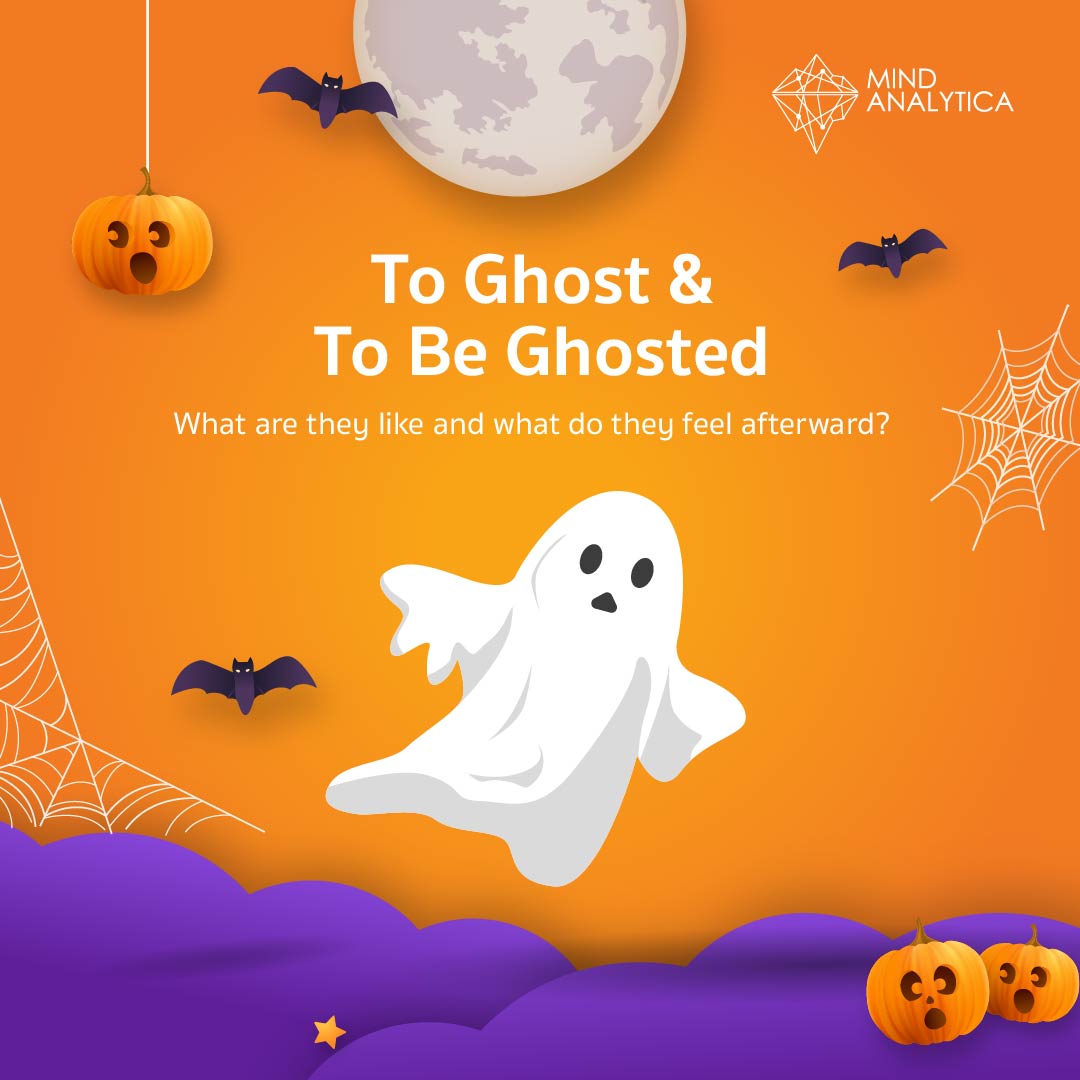To Ghost & To Be Ghosted
31 ตุลาคม 2567 - เวลาอ่าน 4 นาที
What are they like and what do they feel afterward?
In relationships, not all connections end with a happy ending. Sometimes, conflicts lead to breakups and heartache—or even vanishings without a chance to say goodbye. In today’s digital world, where interactions and breakups happen quickly, one person in the relationship may find themselves unexpectedly abandoned.
Ghosting is a method one partner uses to end a relationship, especially in this digital era, as a way to avoid direct confrontation. It is often used in relationships that don’t require a clear definition or commitment. Ghosting is distinct from other ways of breaking up as it lacks any explanation or acknowledgment that the relationship has ended.
What Signals That Ghosting Is Happening?
1. Sudden or gradual reduction in contact or interaction.
2. Disappearance across one or more communication channels—ignoring calls, unread messages, unfollowing on social media, or blocking.
Could it be that those who ghost and those who are ghosted share certain personality traits? In a 2022 study, Jacqueline M. Di Santo from the State University of New York at New Paltz and colleagues from the University of California, Davis, examined the personalities of people who ghost and those who get ghosted. They found that people who frequently ghost tend to exhibit the following traits:
- Low humanism or empathy for others
- Narcissism
- Extroversion
- Emotional instability (neuroticism)
- Low life satisfaction
- Low dependence attachment
- A preference for non-committed sexual behavior (sociosexuality)
- Symptoms of borderline personality disorder, often experiencing emotional instability and a fear of abandonment, which can complicate maintaining stable relationships.
People who are frequently ghosted often have similar traits to those who ghost, except for factors like emotional instability or life satisfaction.
Additionally, ghosting is often cyclical. Those who ghost others may do so due to prior experiences of being ghosted, as a 2020 study by Raúl Navarro and colleagues from the University of Castilla-La Mancha in Spain found. Those who initiate ghosting often have been ghosted themselves in previous relationships.
Emotional Impact on Those Who Ghost and Those Who Are Ghosted
In a 2024 study by Gili Freedman from St. Mary’s College of Maryland and colleagues, it was found that those who ghost experience feelings of:
- Pride
- Happiness
- Guilt
- Belonging
- Self-esteem
- Meaningfulness
- Control
On the other hand, those who are ghosted feel sadness and anger more intensely.
These studies give insight into the personality of those who initiate ghosting, which may help identify individuals who are more likely to ghost in future relationships. At the same time, certain personality traits may also make one prone to being ghosted. Ultimately, ghosting affects the emotions of both sides differently, with the ghost feeling positive and validated, while the ghosted person is more likely to feel sadness and anger.
References
- Di Santo, J. M., Montana, D., Nolan, K., et al. (2022). To ghost or to be ghosted: An examination of the social and psychological correlates associated with ghosting. EvoS Journal, 12, 43-62.
- Freedman, G., Powell, D. N., Le, B., & Williams, K. D. (2024). Emotional experiences of ghosting. The Journal of Social Psychology, 164(3), 367-386.
- Navarro, R., Larrañaga, E., Yubero, S., & Víllora, B. (2021). Individual, interpersonal, and relationship factors associated with ghosting intention and behaviors. Telematics and Informatics, 57, 101513.



